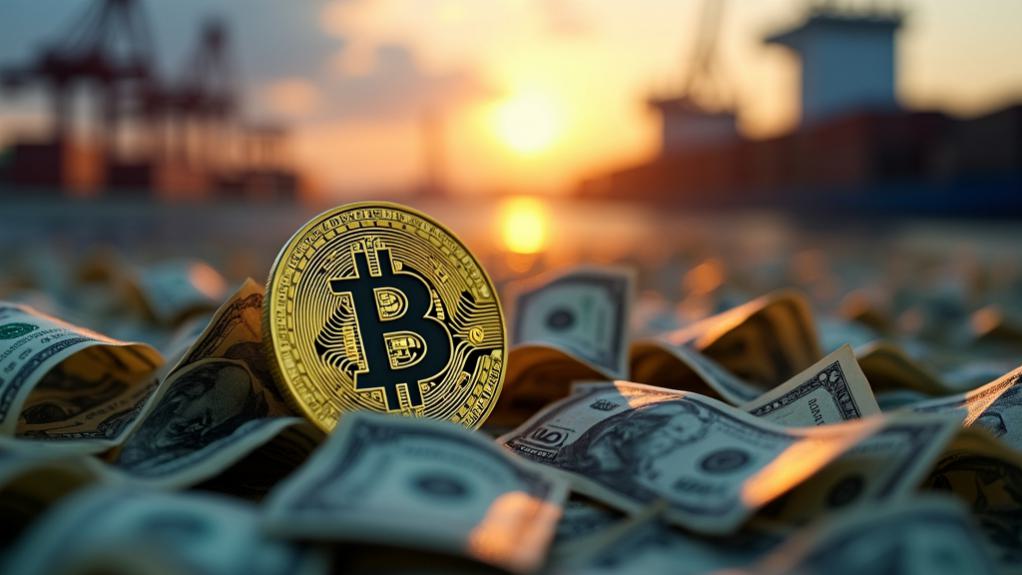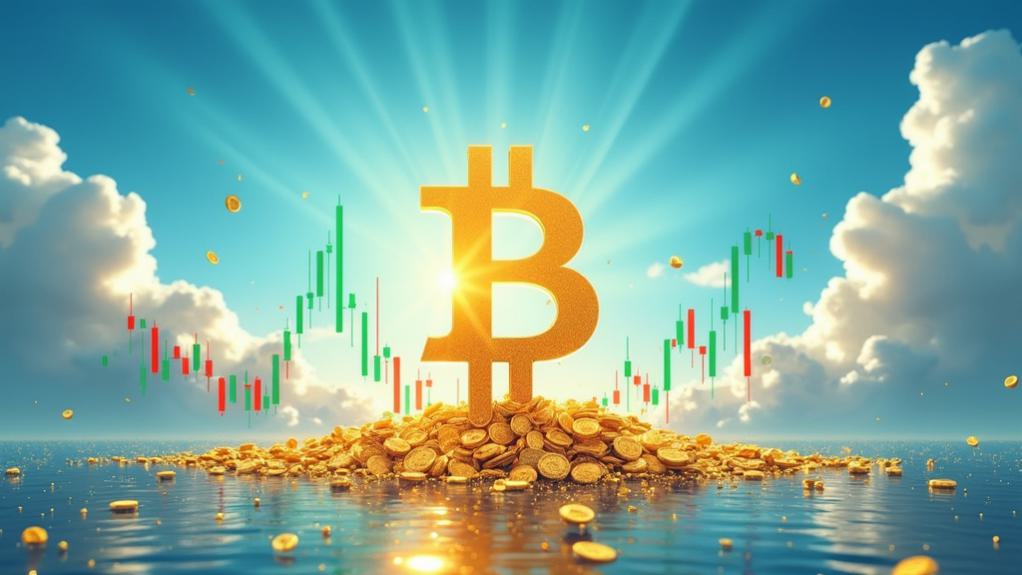When it comes to Trump’s tariffs, the economic landscape has turned a bit chaotic. Amid the import cost hikes and inflation fears, Bitcoin’s price has taken a beating. Over a trillion dollars vanished from the crypto market since December. So much for a safe haven, right? But wait. Maybe there’s a silver lining here.
Tariffs are driving inflation that doesn’t come from a healthy economy, which is bad news for growth. And when economic growth slows, demand for risk assets like Bitcoin tends to dive. Prices have seen lows below $80,000 after hitting an all-time high of over $109,000. It’s like a roller coaster ride nobody signed up for.
Tariffs are stoking inflation, causing Bitcoin prices to plummet from dizzying highs—it’s a wild ride no one anticipated.
Investors are skittish, rushing toward safer assets. Who can blame them? Tariff-induced chaos screams sell-off.
Yet, let’s not count Bitcoin out just yet. Historically, during economic crises, Bitcoin has shown resilience. It’s like that one friend who always bounces back after a rough night out. As inflation rises, Bitcoin could emerge as a hedge, or “digital gold” as some like to call it. Sure, it’s volatile, but in uncertain times, people might flock back to it as a way to preserve their wealth. Additionally, the current Bitcoin price has hit a low of $78,225, highlighting the urgency of the situation. Moreover, Bitcoin’s role in global markets may increase amid financial instability, reinforcing its appeal as an alternative asset. Understanding market dynamics is essential for navigating this volatile landscape.
Then there’s the mining aspect. Tariffs on equipment from places like China increase costs, impacting profitability. It’s a tough break for miners.
But this could also spark innovation domestically. Who knows? Maybe tariffs will lead to a surge of new mining operations in places we never expected.
Regulatory changes under Trump’s administration could reshape the crypto landscape too. Optimism about crypto has faded amid macroeconomic concerns.
But clarity in regulation could be the game-changer. If policymakers see that chaos creates demand for alternatives like Bitcoin, they might just get on board.





